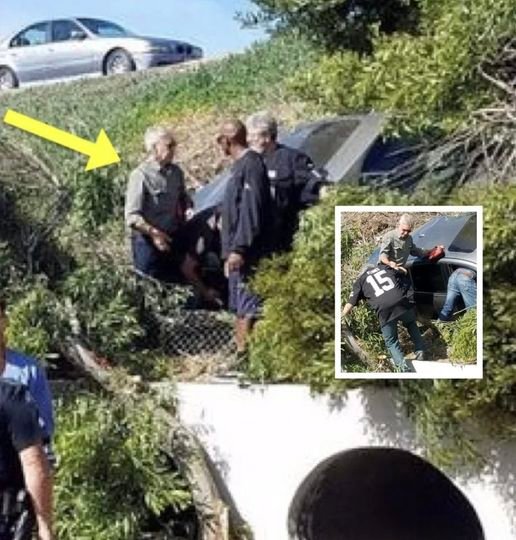A striking red-roofed house in Maui has become a viral sensation for its miraculous survival amidst the raging wildfires, prompting the owner to shed light on the subtle yet critical details that she believes played a role in its unscathed state while the neighborhood turned to ashes.
Breathtaking aerial images of the untouched property spread like wildfire last week, giving rise to some wild conspiracy theories that suggested the local devastation was the result of a targeted space laser attack.
However, Dora Atwater Millikin, the homeowner, attributes the home’s survival to a series of routine changes made during a recent renovation, none of which were intended to protect against such a catastrophic event.
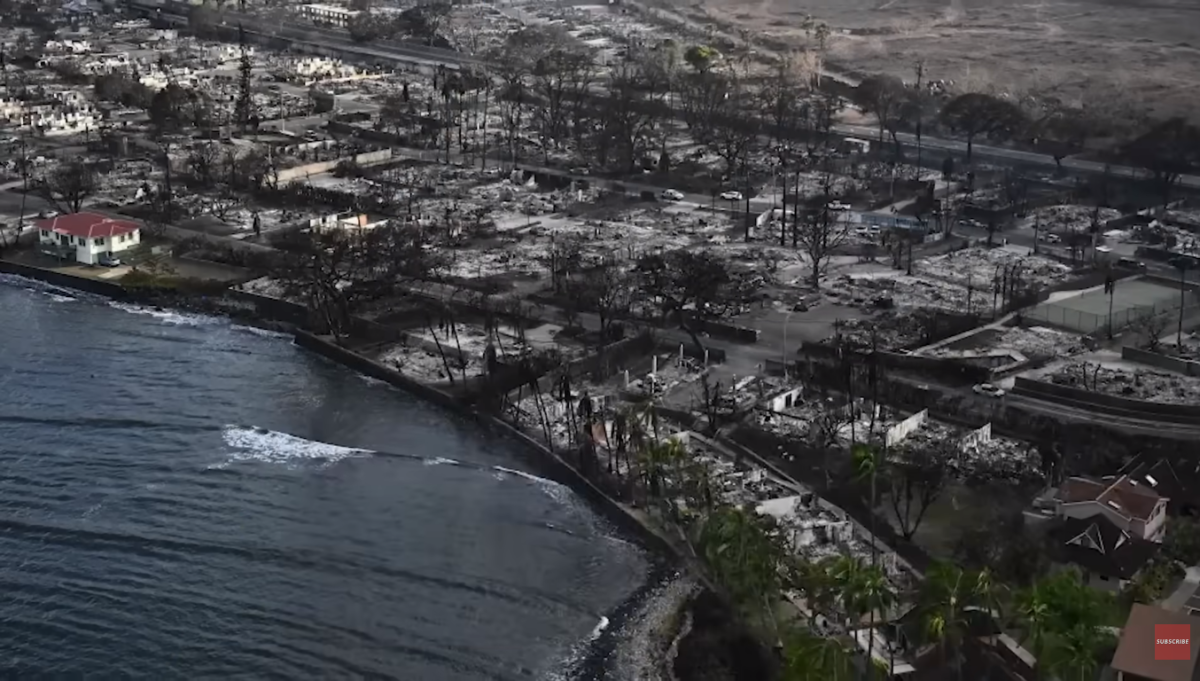
“The house is 100% wood, so it’s not like we fireproofed it or anything,” Millikin, a landscape painter, shared with the Los Angeles Times.
During the renovation, Millikin and her husband, Dudley, a retired portfolio manager, had no inkling of the wildfires to come. Their focus was on restoring the 100-year-old former bookkeeper’s house that they’ve owned for three years, driven by a love for historical architecture rather than disaster preparedness.
“We love old buildings, so we just wanted to honor the building,” explained Millikin. “And we didn’t modify the building in any way — we simply restored it.”
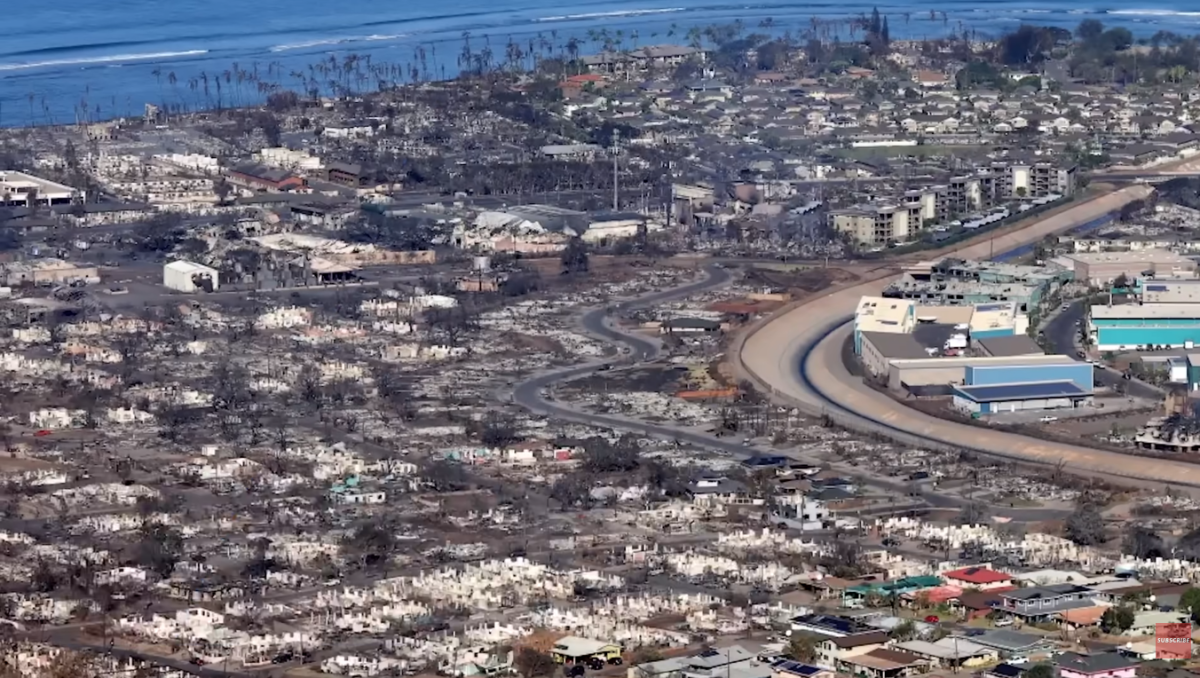
One unexpected decision that might have contributed to the home’s survival was replacing the traditional asphalt roof with a heavy-gauge metal one. While this alteration wasn’t driven by fire resistance, it turned out to be a game-changer.
Millikin learned that during the fire, “pieces of wood — some as long as 6 to 12 inches — were aflame and seemingly floating through the air due to the wind.” These fiery projectiles could set roofs ablaze upon impact, but the metal roof acted as a formidable barrier against such threats.
Another stroke of luck came with their landscaping choices. While the couple’s intention was to fend off termites, their actions inadvertently aligned with expert recommendations for protecting homes from wildfires. The area around the house was lined with stones up to the roof’s drip line, and flammable foliage near the exterior walls was removed.
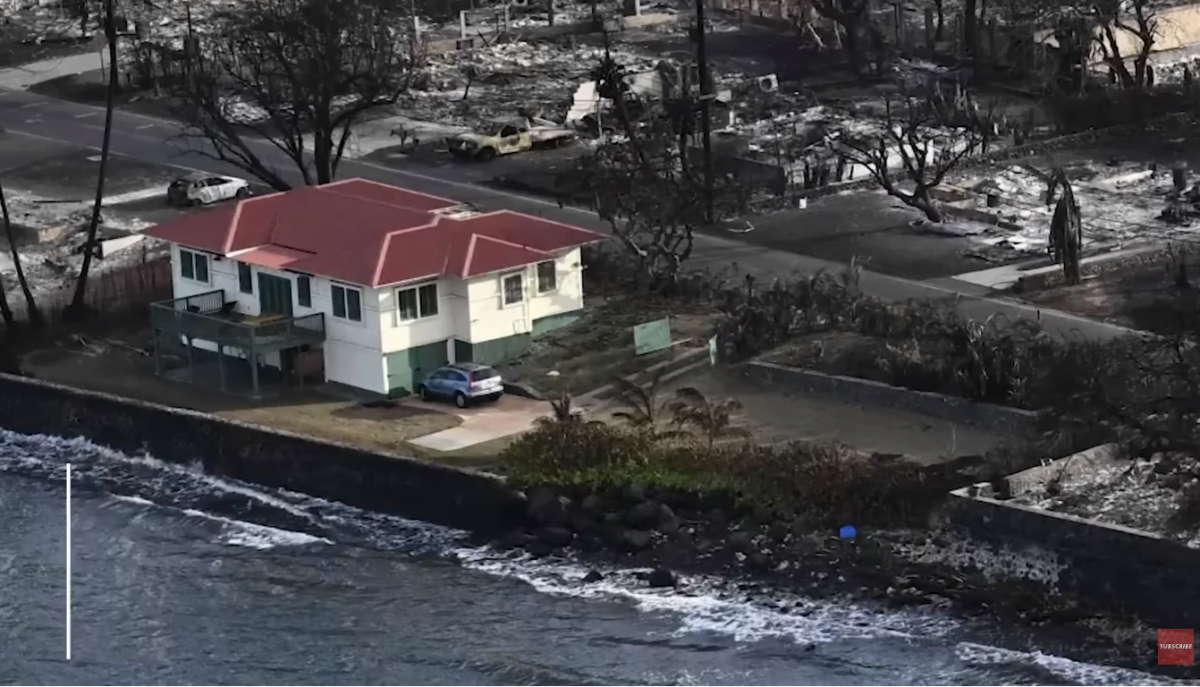
Susie Kocher, a forestry adviser for the University of California Cooperative Extension, lauded their efforts. She noted that keeping flammable shrubs and bushes away from a house is crucial to preventing ember ignition, which can lead to a cascade of destruction.
The house’s strategic location also played a role in its survival. Situated on three sides by the ocean, a road, and an empty lot, the property was shielded from the main sources of fire fuel.
While the house had sprinklers, power outages during the crisis rendered them useless. Nonetheless, combustible materials were cleared from the under-deck area facing the ocean.
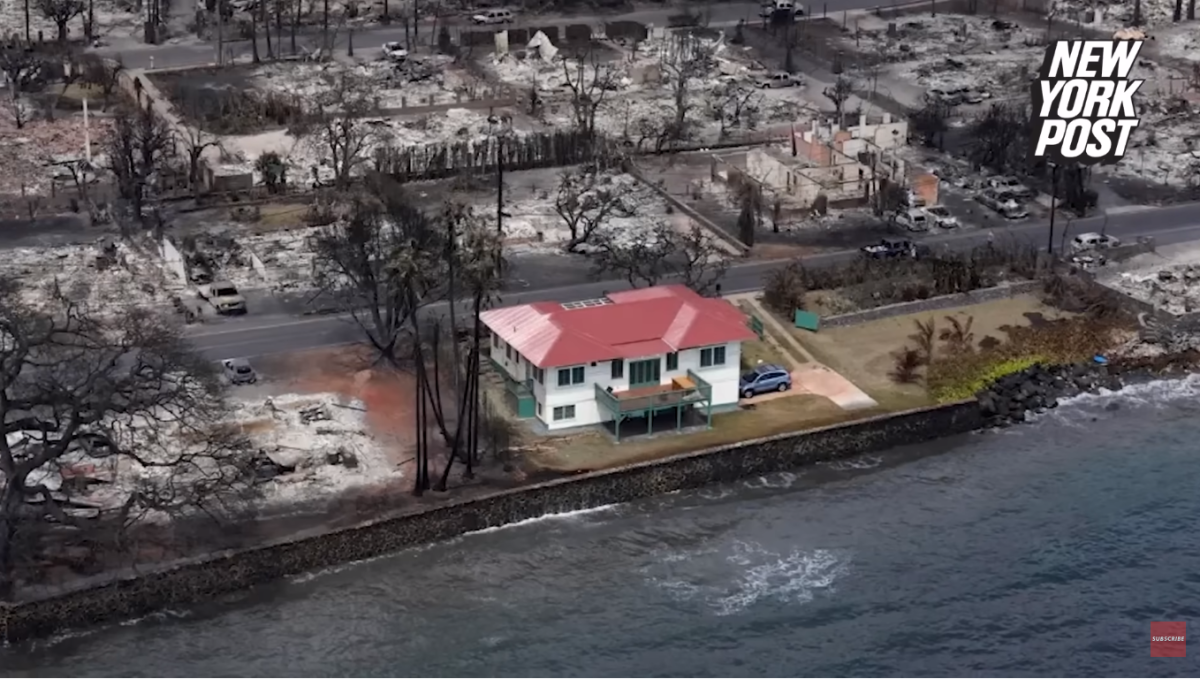
Embers, rather than walls of flames, are often the instigators of home fires, according to Kocher. This understanding, however, remains elusive to many, leading to misguided conspiracy theories and rumors.
As Millikin and her husband prepare to return to Maui, their plans extend beyond their own recovery. They’re committed to assisting their neighbors, who were left homeless by the fires, emphasizing the importance of community solidarity in the face of adversity.
“We lost neighbors in this, and neighbors lost everything,” Millikin emphasized. “In times like these, we need to care for each other and rebuild. It’s a collective effort to rebuild what’s been lost.”
